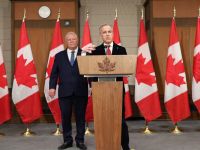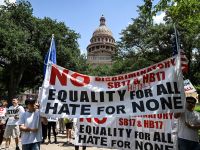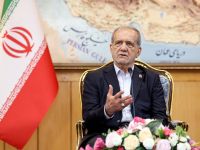Iraq, strengthened by crude production levels unseen since the Gulf War at a time of global supply shortages, is taking its fight for high prices and against US influence to the OPEC summit. However, that fight will not be personally led by President Saddam Hussein, who has not left Iraq for security reasons since the Gulf crisis of 1990-1991. He will not attend the summit, which opens in Caracas on Wednesday.
Instead, Saddam is sending a powerful delegation, led by Oil Minister Amer Rashid and Foreign Minister Mohammad Said al-Sahhaf, to voice Baghdad's policy of opposing a further hike in OPEC production quotas."Iraq wants OPEC to unite member countries to defend their resources and to resist the temptation to put the interests of the big industrialised nations before those of the oil market," an Iraqi oil official told AFP.
Iraq won major support for its policies this summer when Venezuelan President Hugo Chavez became the first head of state to meet Saddam in Baghdad since 1991, in the face of strong criticism from the US.
At the end of that 24-hour visit, part of a tour of OPEC countries to prepare for the summit, Saddam called for OPEC members to shake off US pressure in order to ensure the summit's success.
"If the summit is held and includes people representing foreign interests in OPEC's bosom, it will be difficult to reach an accord on constructive ideas," Saddam said at the time.Last week, Saddam accused western states of looking to tighten their grip on oil-producing countries to ensure that oil prices drop from current 10-year highs.
"The great powers will look to tighten their grip on oil-producing countries," he said. "These countries are using oil against us, but no-one will be able to harm the masters of oil."Iraq, which has the second-largest oil reserves in the world after Saudi Arabia, has warned of a catastrophic plunge in prices if consumer nations replenish oil stocks.
While Baghdad opposes OPEC production hikes aimed at lowering prices, it is desperately trying to boost its own production and has even set a target of double its August figure of three million barrels per day.
But that would require investment of 30 billion dollars to renovate the obsolete and decaying infrastructure. And that can not happen until the decade-old sanctions are lifted by the United Nations.
"The Caracas summit offers the opportunity to ensure OPEC's unity, decision-making autonomy and its role on the international market," Rashid said last week.He called for "solidarity with the other developing counties and the strengthening of relations with other oil producers".
Rashid said Iraq wanted out of the Caracas talks "a long-term strategy taking into account the challenges OPEC faces, particularly on the high taxation raised in the West on oil products."Iraq is obliged to sell its crude in exchange for basic goods and medicines under the UN oil-for-food programme as part of the punishment for invading Kuwait in 1990.—AFP.
©--Agence France Presse.
© 2000 Mena Report (www.menareport.com)







